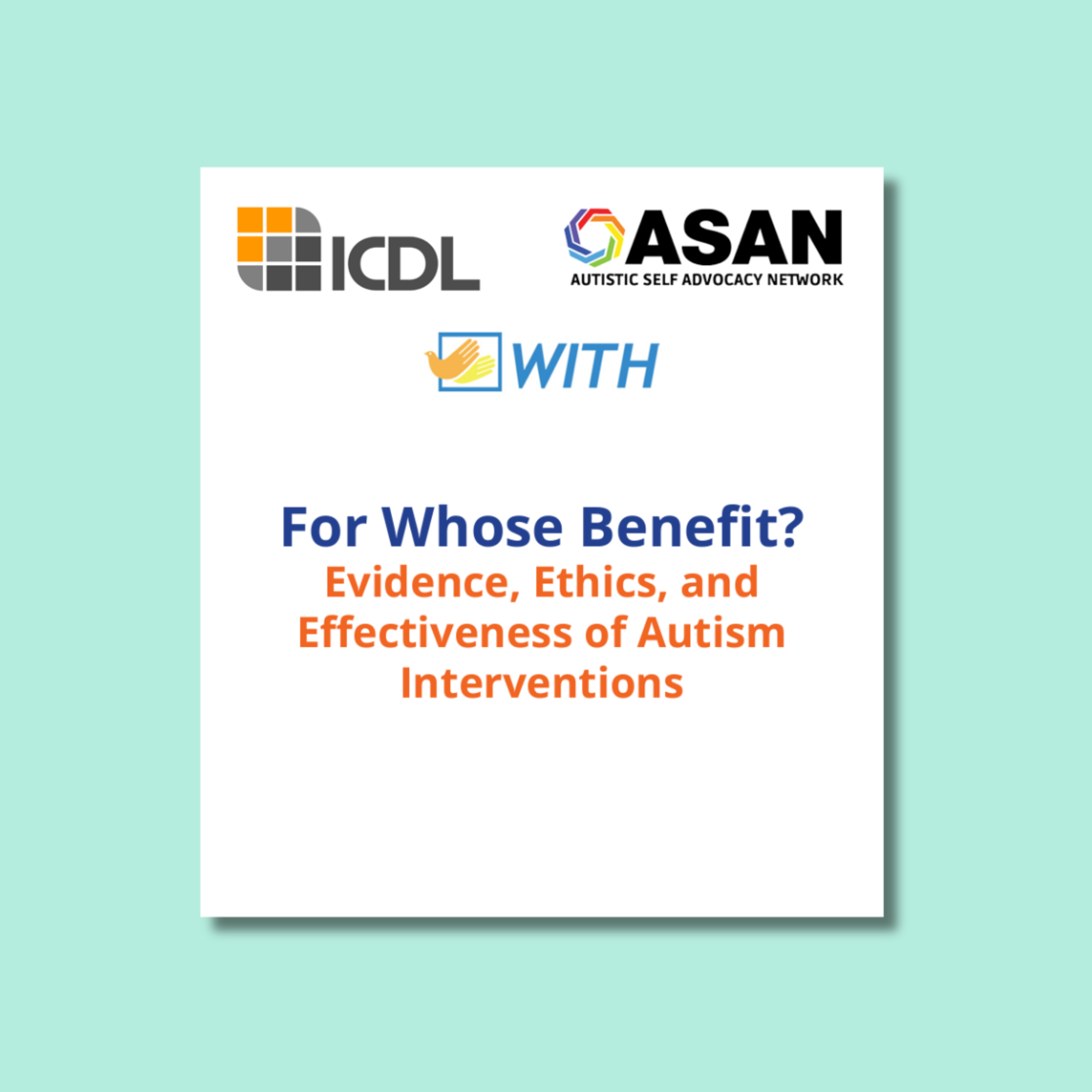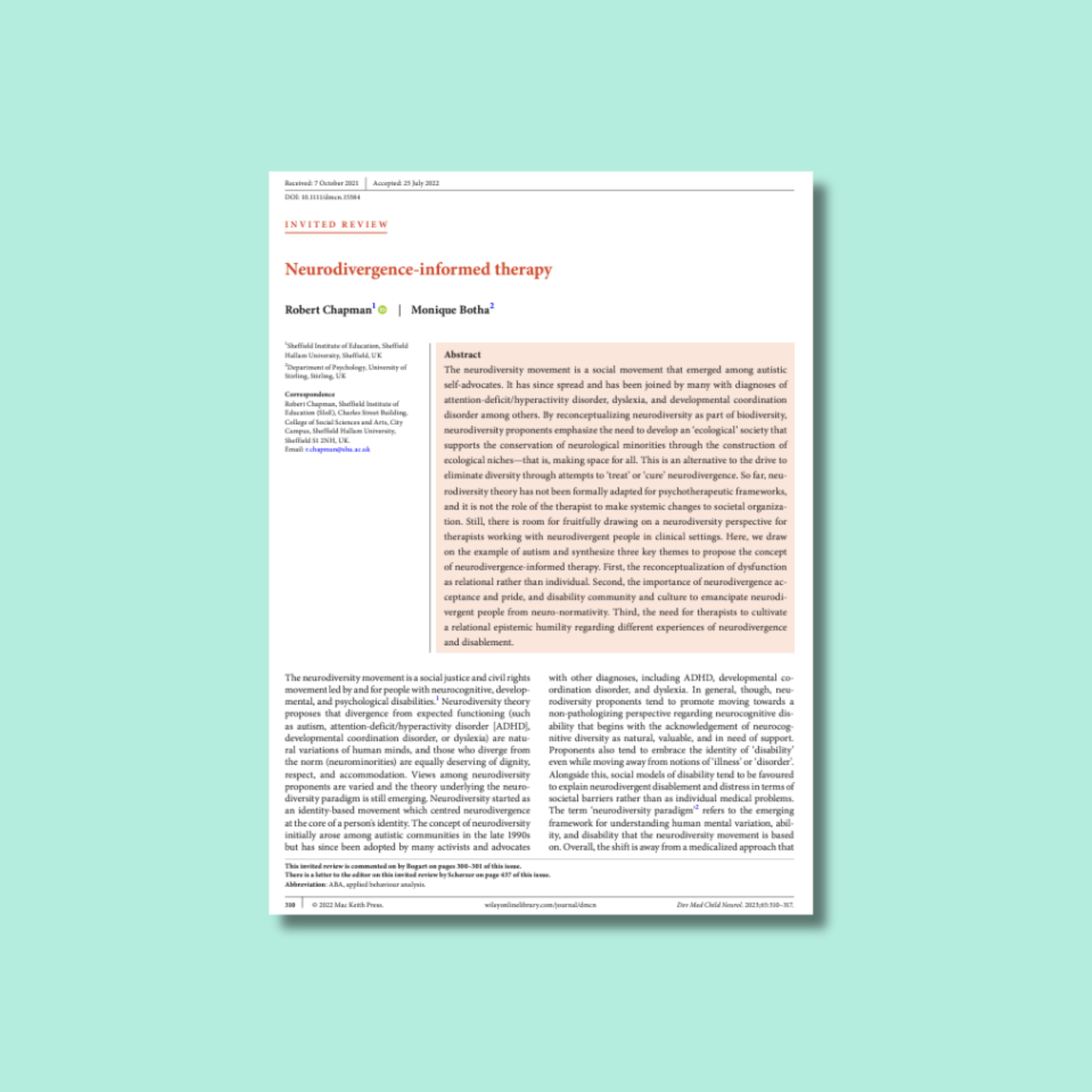
For Whose Benefit? Evidence, Ethics and Effectiveness of Autism Interventions
ICDL, ASAN, WITH
This report by ASAN critically examines the ethics and effectiveness of autism-related therapies and services, highlighting that autistic people are often excluded from their design and implementation. It raises major concerns about practices like Applied Behavioural Analysis (ABA), which focus on “normalising” autistic traits, an approach linked to negative mental health outcomes and ethical issues like consent and bodily autonomy. The report calls for a new ethical framework centred on the needs, perspectives, and self-determination of autistic individuals across all types of interventions.
Disclaimer: discusses harm and distress.
For Whose Benefit? Evidence, Ethics and Effectiveness of Autism Interventions
ICDL, ASAN, WITH
This report by ASAN critically examines the ethics and effectiveness of autism-related therapies and services, highlighting that autistic people are often excluded from their design and implementation. It raises major concerns about practices like Applied Behavioural Analysis (ABA), which focus on “normalising” autistic traits, an approach linked to negative mental health outcomes and ethical issues like consent and bodily autonomy. The report calls for a new ethical framework centred on the needs, perspectives, and self-determination of autistic individuals across all types of interventions.
Disclaimer: discusses harm and distress.






